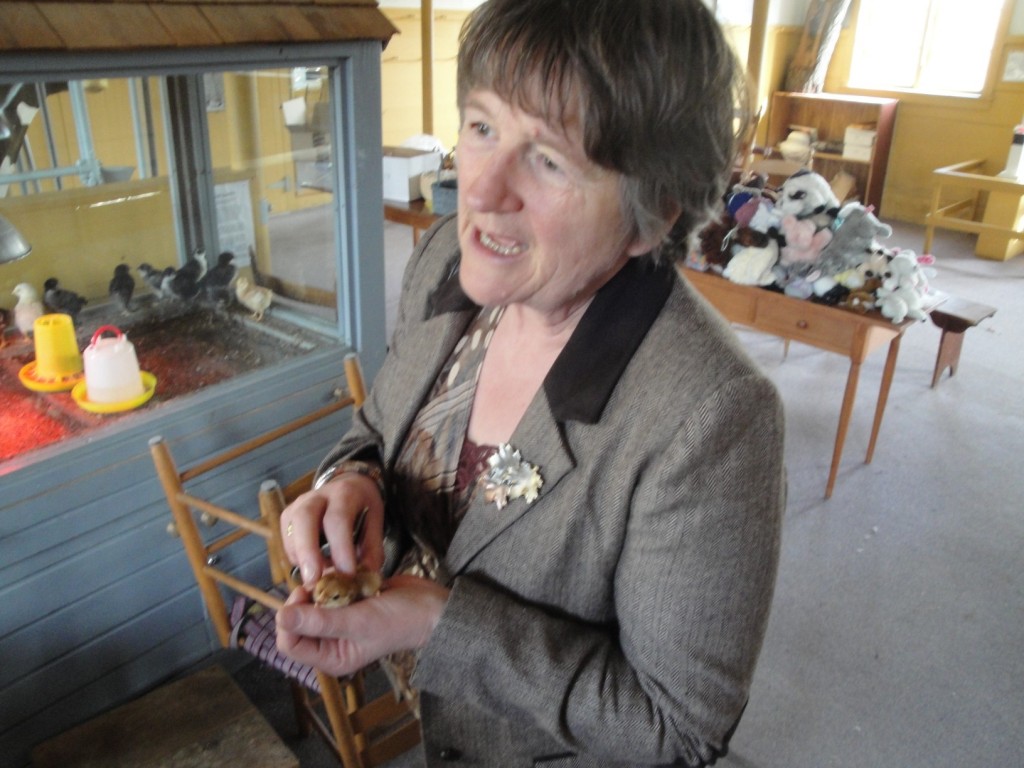Welcome to ‘Under the spotlight’, the first of a series of monthly features on the French History Network blog. Each month we’ll post a short interview with a leading scholar of French History, showing a snapshot from academics’ lives: their passions, interests and reading suggestions – all summarised in less than ten minutes.
To start the series off, the new President of the Society for the Study of French History, Professor Máire Cross steps into the blogging limelight. Máire is professor of French at Newcastle University where she is currently working on her new monograph In the Footsteps of Flora Tristan. A Political Biography in Motion which examines the intertwined lives of Flora Tristan and her biographer Jules-Louis Puech.

In one sentence, what is your research about?
After working on Flora Tristan for many years I am now writing a book about her biographer Jules-Louis Puech, who was a pacifist, feminist and socialist of the Third Republic and involved in many projects in addition to rescuing Flora Tristan from obscurity.
What was your motivation for researching French history?
When I was at school in Ireland studying 1789 I thought France an amazing country that had so many different revolutions and ideas about politics. Then I became very curious about where the women were in the grand scheme of politics and discovered their whereabouts: absent. So I decided I wanted to find out why. Ever since my undergraduate degree I have enjoyed going to France and have spent considerable time there. It helps that the French I meet love talking about their politics and history. I have learnt so much from visits, not just from the archives.
If you could travel back to any historical period or moment, when would it be?
To Toulon and Marseilles in July 1844, when Flora Tristan was in town holding meetings and having success in spreading her ideas for a workers’ organisation.
Who would you invite to your French History fantasy dinner party?
Louis Barthas, whose war diary Les carnets de guerre de Louis Barthas, tonnelier, 1914-1918 (Francois Maspero, 1978) is amazing and who comes across as a great human being. I would want to invite a lively character who would have a lot to say. Not George Sand because she was very quiet in large company but would blog all about the event afterwards. Michelle Perrot would be my preferred historian guest.
Which French History monograph do you wish you had written?
If you mean: which author do I admire, that is too hard to limit myself to one: Stéphane Gerson’s work, The Pride of Place: Local Memories and Political Culture in Modern France (Cornell University Press, 2003), a beautifully written book is first choice and there is also Rachel G. Fuchs who wrote (among others) Contested Paternity: Constructing Families in Modern France (Johns Hopkins University Press, 2008). The monograph I really wish I had written is the one I am currently writing!
Which book(s) are currently by your bedside?
I am half-way through three great books at present. Emmanuel Carrère’s book, Le Royaume (l loved his Limonov,), Gabriel Marquez A Hundred Years of Solitude and Jamrach’s Menagerie, by Carol Birch. I like to have a variety so usually have at least one or two books on the go at once and for the same reason my knitting box has at least two half-finished ‘projects’ which can be a bit messy. Just like research, it is great to finish something!
What key piece of advice would you offer postgraduates and early career academics?
Have confidence to get into research conversations with peers, be imaginative in making connections across subjects and be passionate about what you do.
A few quick fire questions – choose between:
Louise Michel or Simone de Beauvoir?
Louise Michel is right up my street: a fearless political activist whose defence of the downtrodden drove her to confrontation with the authorities, whose dearest loves were her mother and her cats.
Archives Nationales or Archives Départementales?
Archives Départementales.
Monograph or journal article?
Both! Sometimes I can’t find the time to finish reading a monograph or read it through completely. At least with an article you have a better chance to read it in one sitting.
Politics or culture?
Politics
18th, 19th, 20th or 21st century?
19th century
And lastly… Eclair or saucisson?
Saucisson!
—
Many thanks to Máire for taking the time to answer our questions.
If you’d like to take part, or suggest someone to feature on the blog, then let us know!


